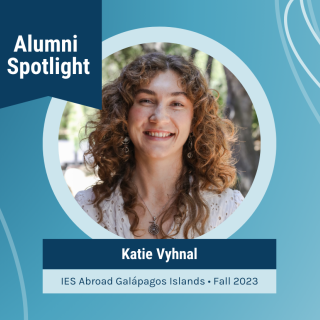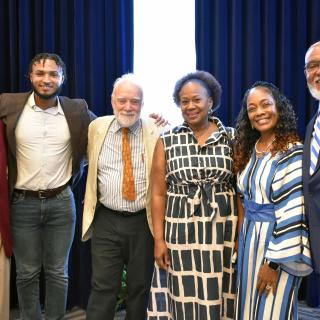 Meet Lee B. Reichman, MD, MPH (IES Abroad Vienna, Spring 1959), Adjunct Professor of Medicine at Rutgers New Jersey Medical School and Professor of Epidemiology at Rutgers School of Public Health. After studying abroad in Austria, Dr. Reichman served as commissioned officer in the U.S. Public Health Service, providing medical care to Peace Corps Volunteers in Bolivia. There he developed an interest in tuberculosis and now serves as Senior Advisor at the New Jersey Medical School Global TB Institute.
Meet Lee B. Reichman, MD, MPH (IES Abroad Vienna, Spring 1959), Adjunct Professor of Medicine at Rutgers New Jersey Medical School and Professor of Epidemiology at Rutgers School of Public Health. After studying abroad in Austria, Dr. Reichman served as commissioned officer in the U.S. Public Health Service, providing medical care to Peace Corps Volunteers in Bolivia. There he developed an interest in tuberculosis and now serves as Senior Advisor at the New Jersey Medical School Global TB Institute.
Read on to find out Dr. Reichman’s advice for studying abroad as a Pre-Med student.
IES Abroad: Why did you decide to study abroad in Vienna?
Lee B. Reichman (LR): I was getting bored with Oberlin and was interested in travel, which I had never done. The opportunity to see most of Europe, and get credit at the same time, and to go via ship (in those days!) all included was mind boggling, almost too good to be true.
IES Abroad: How did studying abroad influence you, both professionally and personally?
LR: Recognizing that there is a whole other world out there. Recognizing for the first time that my country was not the center of the universe. Recognizing the world in context.
IES Abroad: Why did you choose to serve in the Peace Corp in Bolivia?
LR: The earlier IES Abroad experience in Europe was quite formative. I wanted to extend it to a developing country. But the fact that I was a commissioned officer in the U.S. Public Health Service, charged with providing medical care to Peace Corps Volunteers, which was in place of being drafted into active service during the Vietnam War, also, obviously, played a huge part.
IES Abroad: What led to your interest in researching tuberculosis and joining the global fight to prevent and treat it?
LR: Spending two years with a secondary job (beyond caring for Peace Corps Volunteers) observing and somewhat providing health care for host country Bolivians who had a huge rate of tuberculosis (TB), which was then (and somewhat, now) totally neglected.
TB is a prototype global public health problem that is totally unappreciated and remains the largest killer of any communicable disease (surpassing AIDS). It combines clinical care, immunology, behavior, and public policy.
IES Abroad: What advice do you have for Pre-Med students today who are considering study abroad but worried about fitting it into their busy academic curriculum?
LR: IES Abroad provided the perfect solution, fitting the overseas experience into the liberal arts curriculum. I continually marveled at the fact that I lost nothing academically, in doing the half junior year abroad.
I think the key here was the fact that I could accomplish this before medical school when I might be more singularly directed. Medical schools now have large international health components, but my doing this before committing to a branch of medicine, was very important for me.
I consider IES Abroad one of my really key formative experiences, and recommend it to anyone that has access to it.
Curious about finding the perfect study abroad program as a Pre-Med student? Explore our Health & Pre-Med study abroad opportunities around the world.
Check out all of our Alum of the Month profiles to see real examples of how study abroad changed the lives and careers of our former students.





